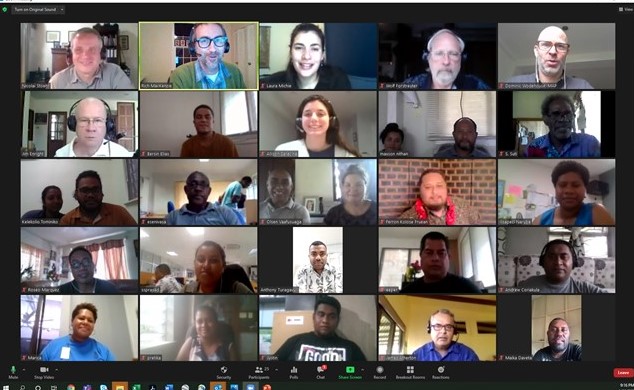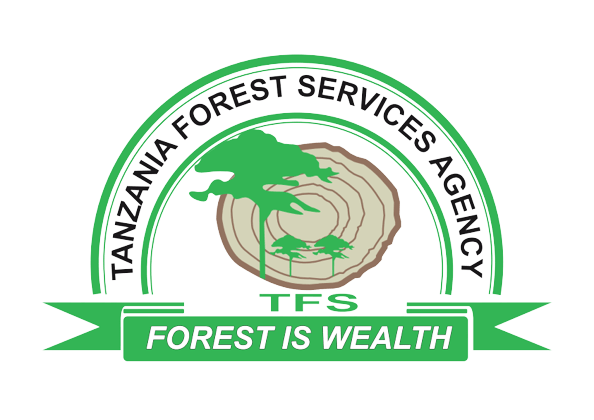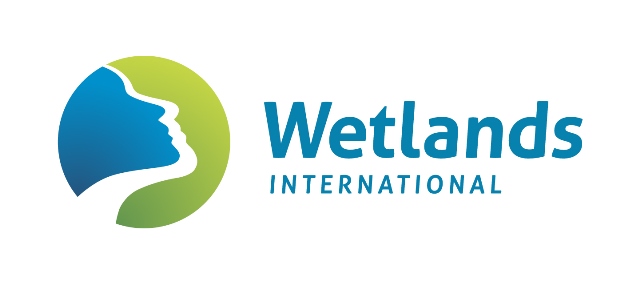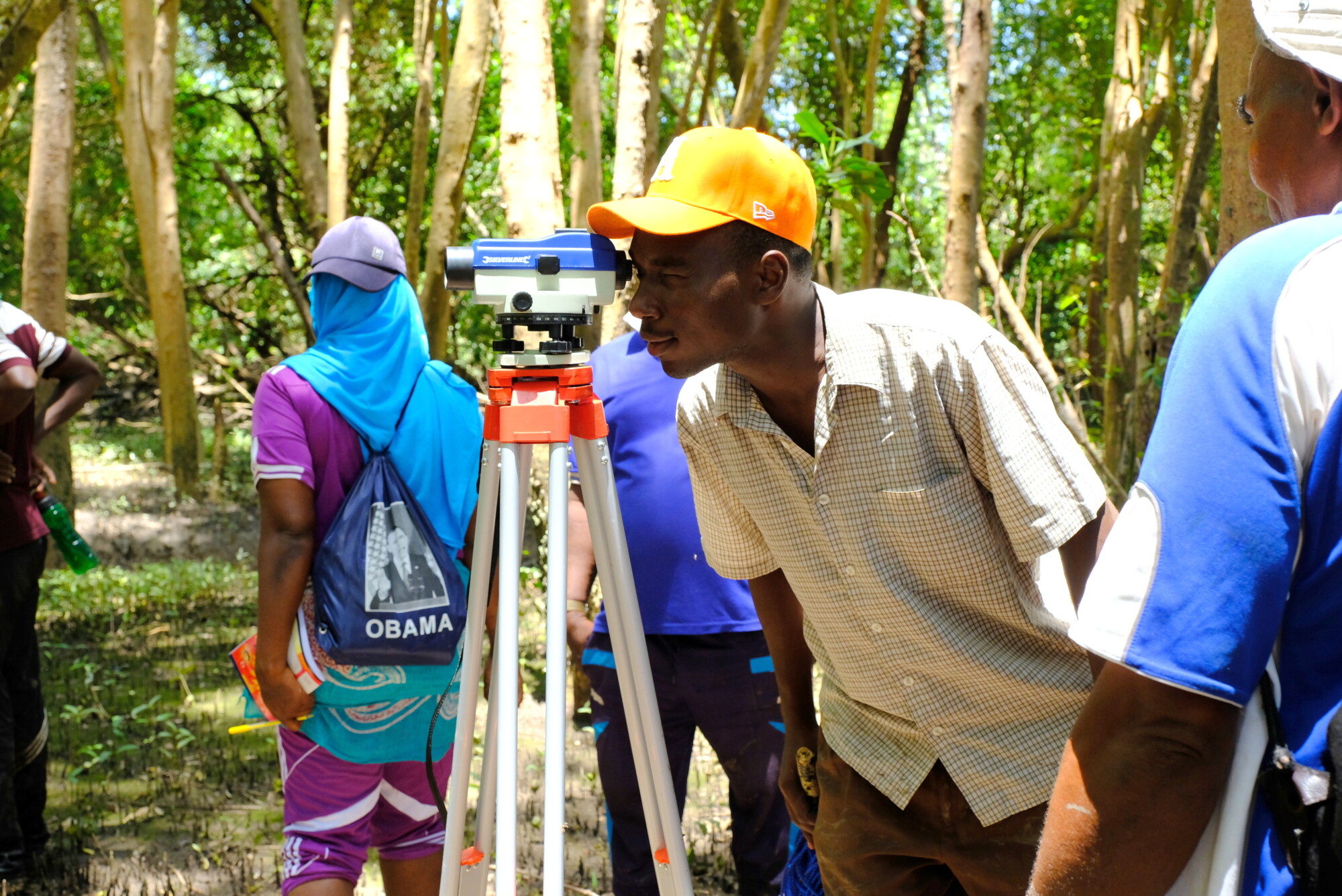
Imagining alternative approaches in Tanzania
Location: Tanzania
Timeline: January – February 2019
Goal: To find sustainable conservation solutions and scenarios for the declining coastal forests with local communities
Partners

Training addressed local challenges posed by rice agriculture and pole and timber production

Discussions included the need to offer alternative livelihood options that would reduce mangrove clearance by farmers

Participants learned the importance of monitoring mangrove regeneration efforts for long-term success
What we did
On behalf of Wetlands International Africa (WIA), MAP undertook a second two-part CBEMR training for 28 participants in Kibiti and the Rufiji Delta, Tanzania. Over the course of eight days, participants from the Tanzanian Forest Service, local NGOs and community-based organizations (CBOs) as well as representatives from Kenya, Mozambique and Madagascar took part in a series of theoretical and practical sessions as part of the capacity building element of WIA’s ‘Mangrove Capital Africa’ program, funded by DoB Ecology, from the Netherlands.
The hugely important Rufiji Delta has the largest expanse of mangrove forest in East Africa. Yet, the forest is still being heavily degraded from agriculture developments for rice and over exploitation for poles and timber, which stress big trees, kill juvenile plants and restrict natural regeneration.
Our training sought to address sustainable conservation solutions with local communities. Following the CBEMR principles, participants learned about the fundamentals of mangrove ecology, restoration and conservation. Training included discussions on maintaining salinity levels, distributing seeds, and hydrology. Moreover, the group focused on the issue of encroachment by rice farmers in the western end of the delta. Stakeholders explored what conditions and resources the government would have to provide to stop further encroachment and incentives for farmers to restore the land, eventually encouraging them to move inland to farm in more appropriate areas.
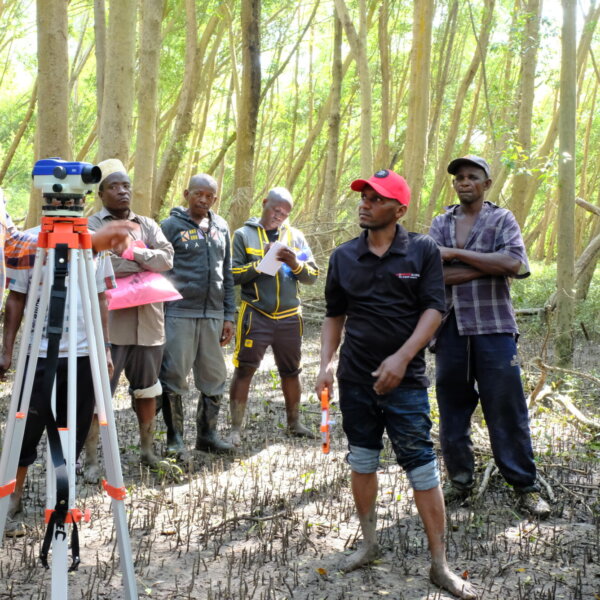
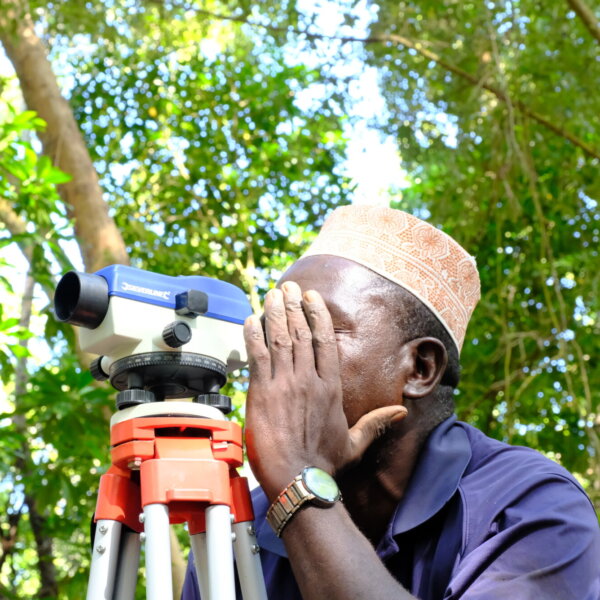
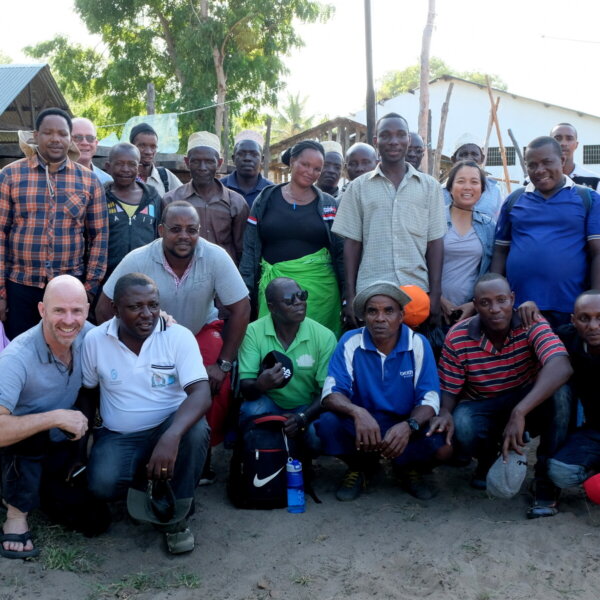
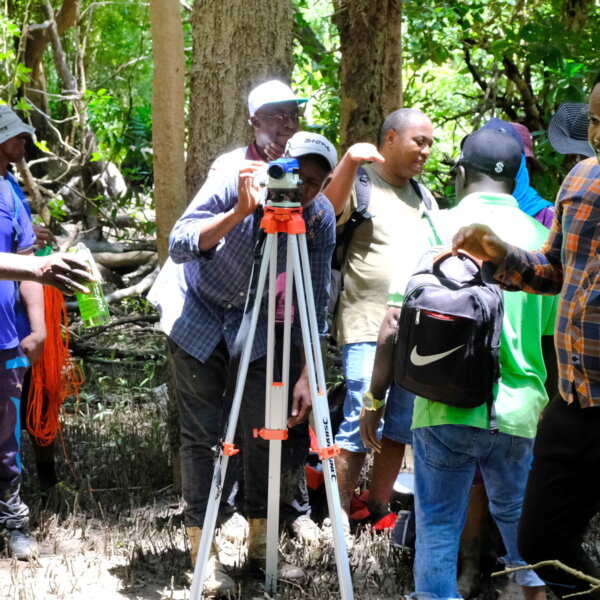
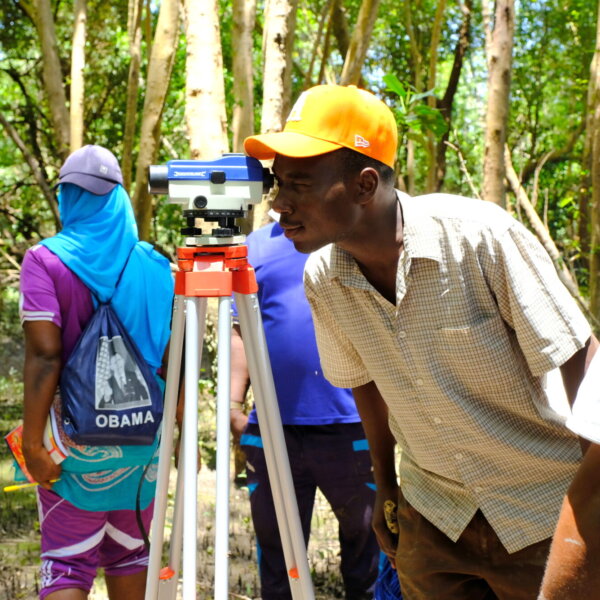
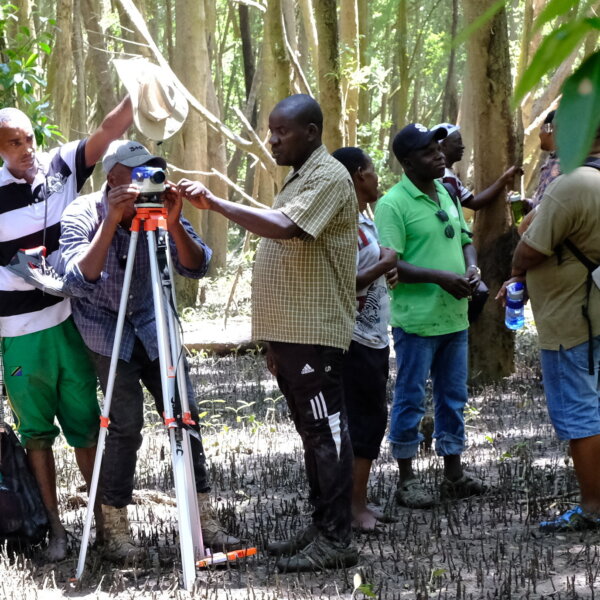
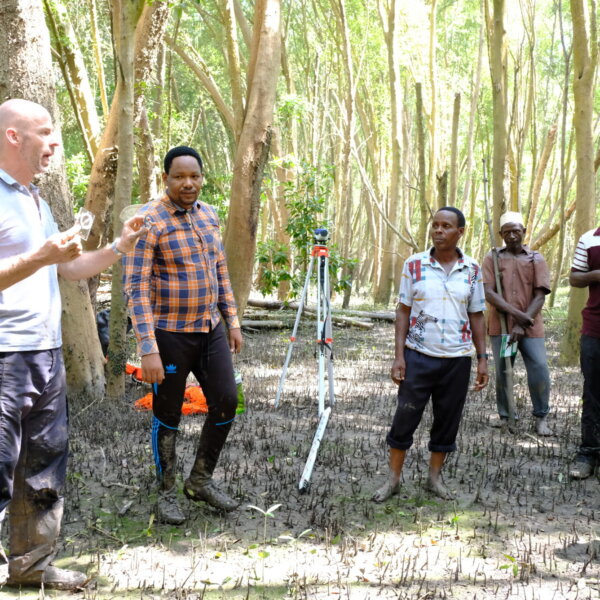
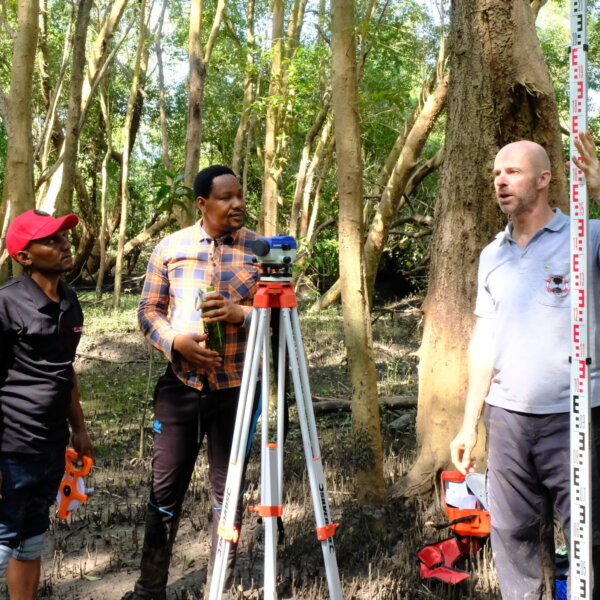
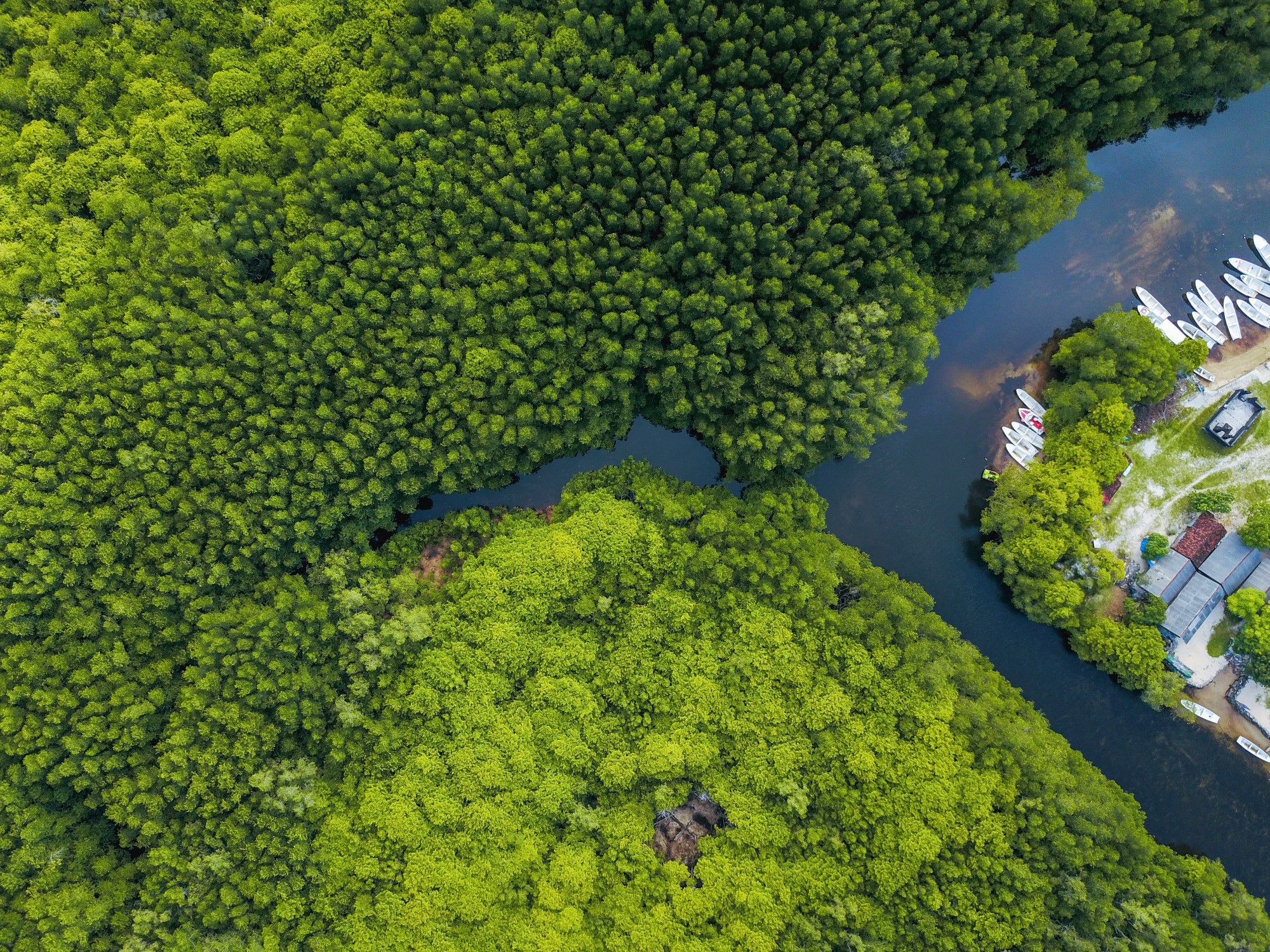
Interested in working with us?
Get in touch with us at dominic@mangroveactionproject.org
Related work
- Read more about Restoring vital ecosystems in Kenya
Restoring vital ecosystems in Kenya
Location: Kenya Timeline: 28th Feb - 21st March 2022 Goal: To share the knowledge and tools for restoring mangroves: a vital…
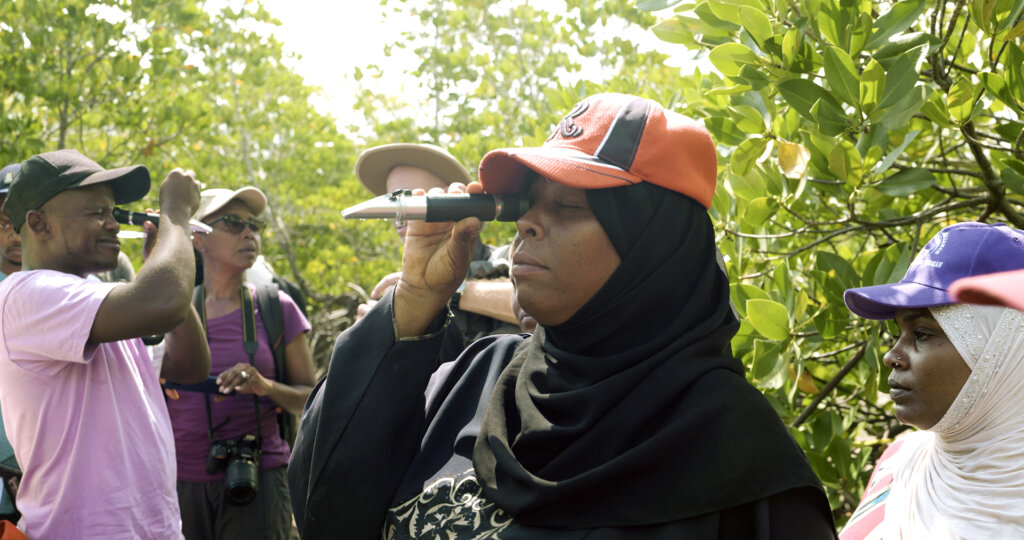
- Read more about Bringing Mangrove Education to Schools in Bangladesh
Bringing Mangrove Education to Schools in Bangladesh
Location: Khulna, Bangladesh Start Year: July 2013 Timeline: 8 days Goal: To deliver Marvellous Mangroves workshops to rural schools in…
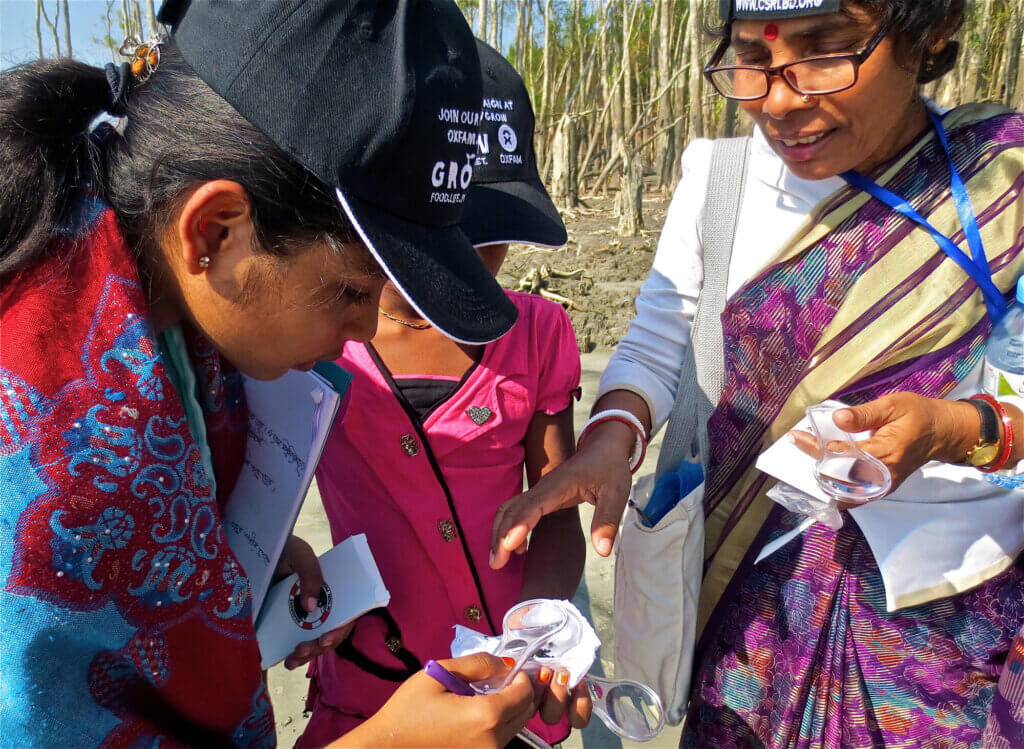
- Read more about Delivering mangrove restoration best practices in the Bahamas
Delivering mangrove restoration best practices in the Bahamas
Location: Bahamas Timeline: March - April 2023 Goal: To support local mangroves restoration efforts and implement best practices for future…
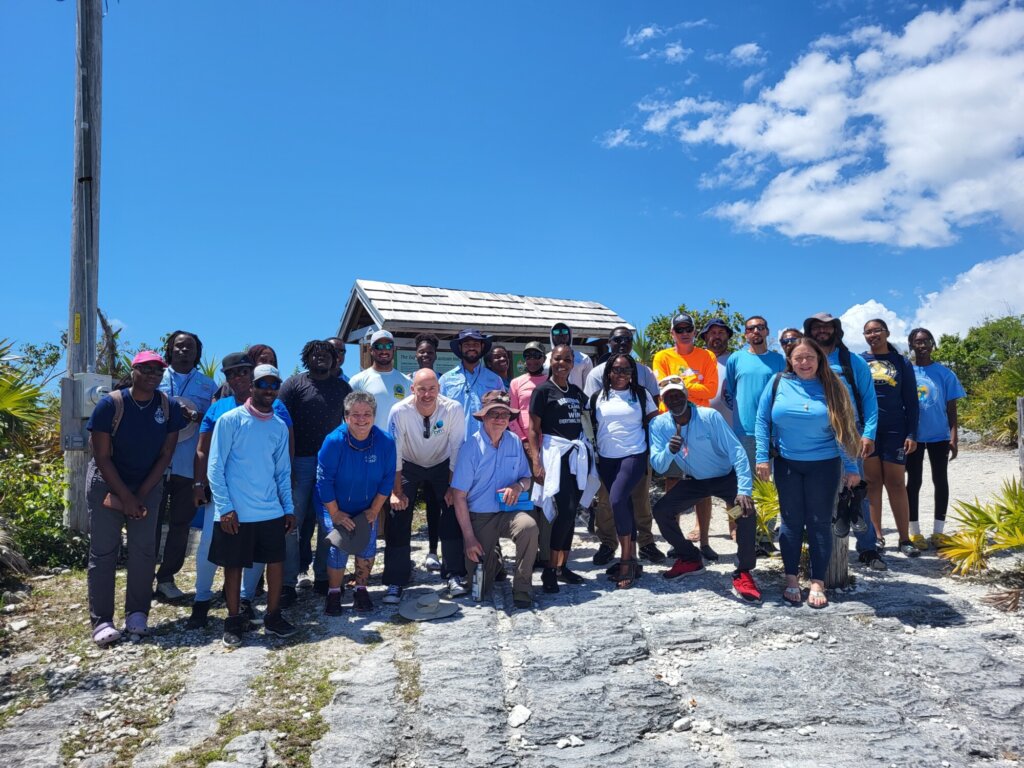
- Read more about Fostering a sustainable network in Honduras
Fostering a sustainable network in Honduras
Location: Honduras Timeline: February 2015 Goal: To work collaboratively with local officials to persuade local villagers and village leaders to reduce…
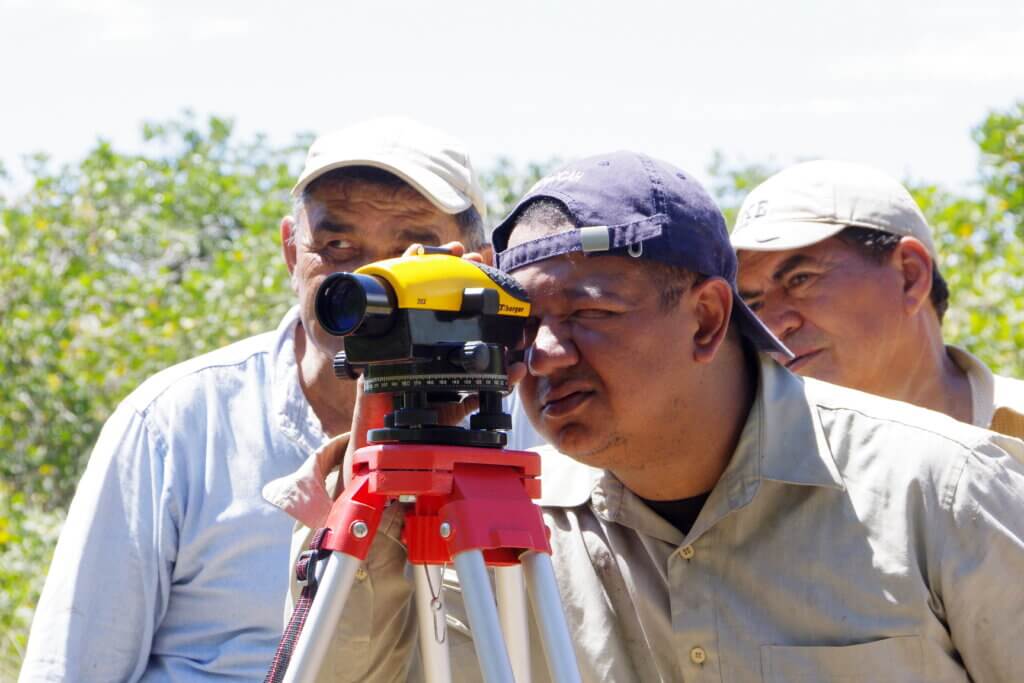
- Read more about Restoration Consultancy in East Kalimantan
Restoration Consultancy in East Kalimantan
Location: East Kalimantan Timeline: March 2018 Goal: To consult on 50ha of mangroves that had been enclosed and cleared in the…
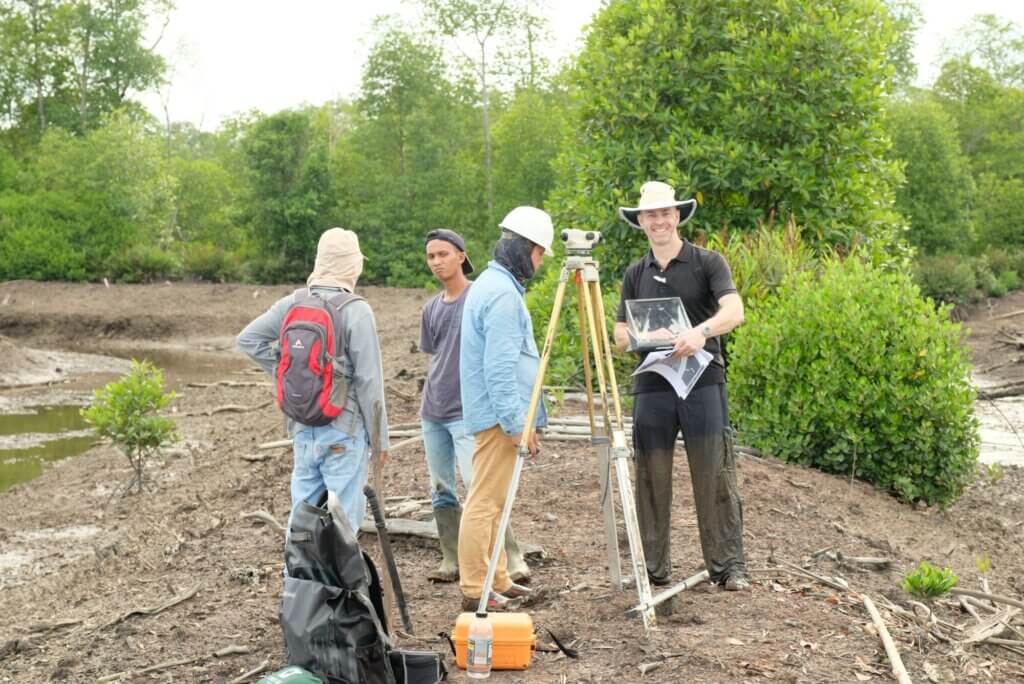
- Read more about Restoring Aquaculture Ponds in Thailand
Restoring Aquaculture Ponds in Thailand
Location: Thailand Timeline: Feb - Oct 2009 Goal: To implement CBEMR training workshops that would result in local restorative action.…
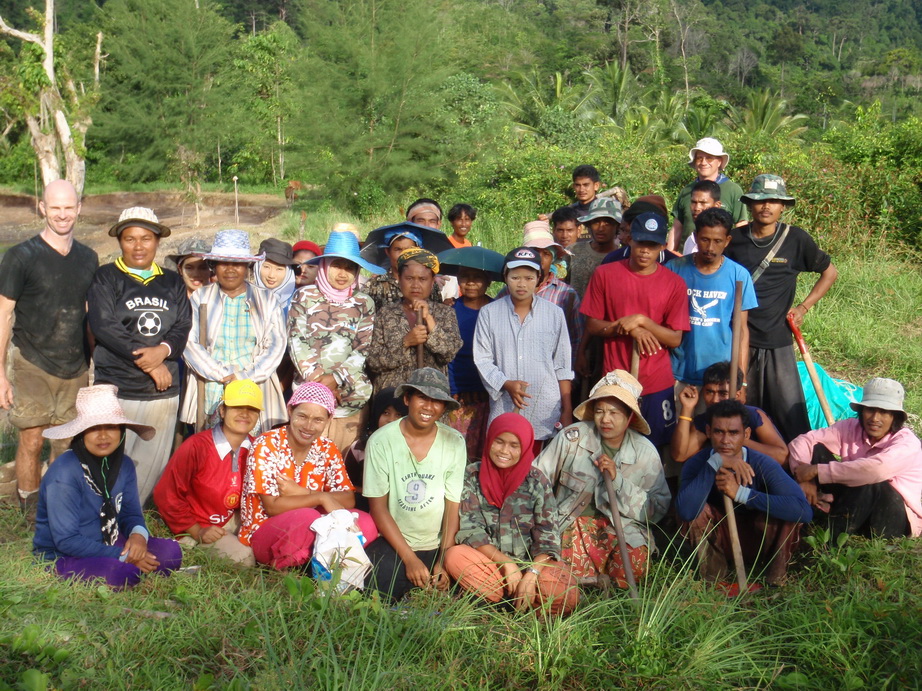
- Read more about Supporting Pacific Island mangrove restoration
Supporting Pacific Island mangrove restoration
Location: Virtual Timeline: January - February 2021 Goal: To partner with the US Forest Service to improve the mangrove restoration skills…
